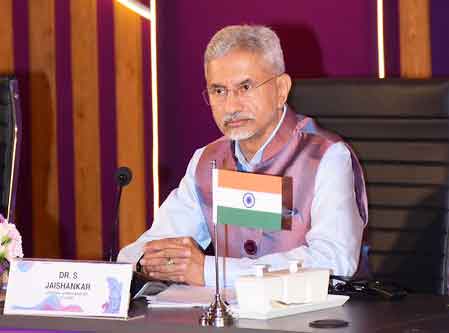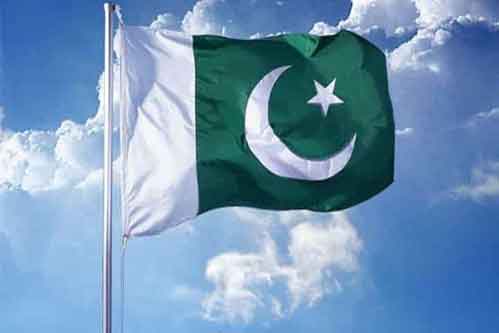As India decided to treat the Pahalgam massacre as the last straw and made up its mind to hit back hard on terror, the cynics and naysayers were worried about the diplomatic fallout and also expressed fears of India’s ‘isolation’ for stepping up the heat at the border.
However, the reality is directly opposite to what they anticipated – India has aced the diplomatic battle and is clearly ahead in the battle of narratives, too.
India’s military strikes on terror factories in Pakistan have garnered global support as governments and leaders across the world have backed New Delhi's right to defend its citizens and do whatever possible to wipe out terror from the region.
From United States (US) to the European Union (EU) to a few Arabic nations, all have justified India’s air strikes and some even asked Pakistan to refrain from escalation.
The global support for India comes on the back of its measured, calibrated and non-escalatory strike on terror spots across the border.
Foreign Secretary Vikram Misri, soon after Indian strikes, shared details of the operation and also explained how any collateral damage was avoided.
However, Pakistan didn’t take the strikes lying down and launched air attacks on Indian military installations for two consecutive nights, though all its bids were thwarted.
India was firm and resolute in its response. It not only repulsed every attack by the Pakistani side but also launched a diplomatic offensive to brief the friendly as well as global bodies about Pakistan’s brazen audacity despite nurturing terror on its soil.
External Affairs Minister, S Jaishankar, spoke to his US and EU counterparts, soon after the missile and drone attack by Pakistan last night and told them that India will respond firmly if there was any act of escalation by the other side.
India’s actions and diplomatic outreach have cut ice with the world and this is evident in the global support building towards it, with many nations issuing a statement in New Delhi's favour, and some others endorsing its fight against terror.
United Kingdom’s (UK) Foreign Secretary, David Lammy, supporting Bharat's actions said that India had every reason to be outraged.
Former UK Prime Minister, Rishi Sunak said, “No country should tolerate cross-border terror.”
Though Russia expressed concern over military escalation, however it condemned terrorism in all forms.
Israel supported India’s right to self-defence, saying, “Terrorists have no sanctuary.”
European Union + all 27 Member States issued a unified statement in India’s favour while nations like France, Netherlands and Japan echoed support for India’s right to self-defence.
US President Trump backed India’s sovereignty and right to respond to terror while Vice-President J.D. Vance urged for de-escalation, emphasising that "it is a regional issue."
A couple of Islamic nations also stood with India, though they refrained from explicitly calling out Pakistan for its terror acts.
Saudi Arabia said it was concerned about rising tension and emphasised on avoiding civilian harm.
UAE and Qatar called for calm and reaffirmed opposition to terrorism. Iran urged peace and said “targeting civilians or using terror is unjustifiable.”
Bangladesh however backed India’s right to self-defence.
The message from the world community, therefore, largely remains in favour of India.
It widely believes that the Indian military establishment acted with restraint and resolve, avoiding wider conflict and it is Pakistan which is behind the escalating row.






11 more Bangladeshi nationals held in Tripura
The Tripura Frontier of the Border Security Force (BSF), jointly with state police, on Friday apprehended 11 more Bangladeshi nationals, including four women and four children, officials said.
Railway Protection Force tightens security in NFR zone
In response to escalating security challenges across the country, Railway Protection Force (RPF) of the Northeast Frontier Railway (NFR) has significantly strengthened its security protocols at stations, trains and railway premises, an official said on Friday.
India opposes IMF lifeline for Pakistan due to terror financing risk
India strongly opposed further financial assistance from the IMF to Pakistan at the executive board meeting held on Friday, expressing serious concerns over Islamabad’s track record and the fact that the bailouts were enabling the cash-strapped country to sponsor cross-border terrorism.
Sirens echo across Jammu as 'blasts' trigger blackout; CM Omar Abdullah posts urgent advisory on social media
Jammu city plunged into darkness late Friday evening after a series of blasts were heard across the region, prompting authorities to sound emergency alarms and urge citizens to stay indoors.
Enough rice, wheat, sugar, oil and pulses stock, no need to panic: Pralhad Joshi
The government on Friday reiterated that there is no shortage of essential commodities in the country, and citizens are advised not to panic or rush to the markets to purchase food grains.
Indian carriers cancel flights to 24 airports till May 15 as tensions flare up
Indian carriers on Friday announced that flights to 24 airports had been cancelled till May 15, following a notification from aviation authorities on the continued closure of multiple airports in the country.
New low even for Pakistan: India hits out at Islamabad for targetting religious places
As Pakistani troops continued resorting to heavy mortar shelling on the Indian side along the Line of Control (LoC), India on Friday slammed the rogue nation for specifically targetting religious places labelling it as a "new low even for Pakistan".
Pakistan's contrasting claims on Indian drone strikes expose its duplicity
In a bid to project it as the superior force, Pakistan is only exposing its duplicity. The contrasting claims by the Pakistan Army and its Defence Minister Khwaja Muhammed Asif regarding Indian drone strikes has caught the attention of netizens, and this has only made them a laughing stock.